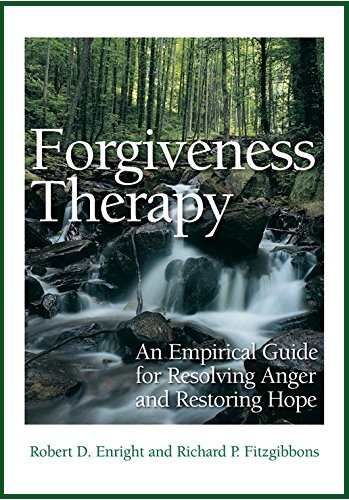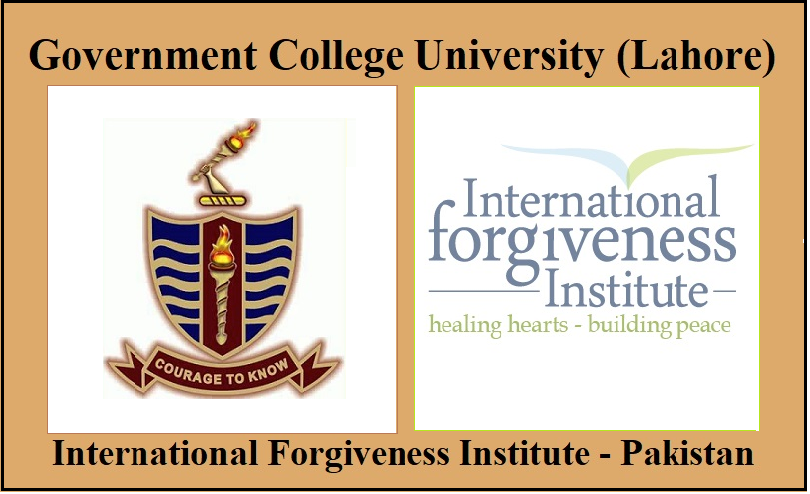Tagged: “resentment”
Is a forgiving community even possible for people who have been oppressed by injustice? Don’t we have to validate the injustice and even overcome it first?
One can validate oppression by acknowledging it and calling it what it is: unfair. One can own one’s legitimate anger over the oppression. Yet, if one waits to actually solve the injustice before forgiving, then those who are oppressing win twice: once with original and ongoing oppression and second by having the oppressed people living under a constant state of unhealthy anger or resentment. That resentment, over time, might be so strong as to destroy individuals and families within that oppressed community. Forgiveness without a correction of the injustice at the very least solves that one problem of destructive resentment.
When I forgive and then look back on what happened to me, do you think that the memories will be more pleasant or am I stuck with bad memories?
When we forgive, we do not forget. We tend to remember in new ways. If you decide to forgive, and when you look back, the memories may not be good in that you see goodness from all involved. You likely still will see unfairness and call it that. The big difference after you forgive is this: When you remember, you will do so with less pain and with more understanding. You still may experience some sadness because of what might have been, but the deep pain of resentment should diminish.
You use the expression, after forgiving, “You now are in control of your anger rather than your anger controlling you.” How do I know if I am in control of the anger?
You can start by asking yourself these questions: 1) Is your anger leading to strained relationships in the family, with friends, and in the workplace? 2) Are you discontented or more settled in your life, even if your circumstances are not the best? 3) Are you less tired than you were before you started to forgive? 4) Are you thinking less about the situation or about the same? If your relationships are doing better (with no displacement of the anger onto others), if you are more settled, less tired, and thinking less about the situation, I would conclude that the anger is no longer controlling you.
I am trying to forgive, but at times I have these feelings of revenge. Is this part of the forgiveness process or am I doing something wrong?
Feelings of revenge can be part of the preliminary process before a person commits to forgiveness. In other words, the process of forgiveness allows for a period of anger. At the same time, you do not want to act on revenge-feelings, but instead realize that revenge-seeking can harm both you (because of harsh emotions that can lead to anxiety or depression) and the other person. So, feelings of revenge are not part of the forgiveness process itself but can be present prior to the decision to forgive. Forgiving can go a long way in eliminating feelings of revenge.
“Forgiveness Pioneer” Wins Inaugural Gold Medal Award for Impact in Psychology
The scientific application of forgiveness, forgiveness education, and forgiveness therapy is being singled out for its “game-changing impact on the field of psychology” by the country’s largest and oldest organization of doctoral-level psychologists.
The American Psychological Foundation (APF), the grant-making arm of the American Psychological Association (APA), has just announced the winner of its first-ever Gold Medal Award for Impact in Psychology—Dr. Robert Enright, a professor of Educational Psychology at the University of Wisconsin-Madison, and founder of the International Forgiveness Institute.
Classified as one of psychology’s highest honors, the award “recognizes a psychologist whose work has had a game-changing impact on the field of psychology,” according to APF board president Terence M. Keane, PhD. He added that the new award acknowledges “a psychologist’s body of work that has been impactful, innovative, and transformational.”
Prior to this year, the award was called the Gold Medal Award for Life Achievement and it has been bestowed on exceptional psychological innovators by the APF for the past 65 years. Previous winners have included B. F. Skinner (the 1971 winner who developed behavior analysis), Harry Harlow (the 1973 winner and a UW-Madison psychologist like Dr. Enright), Rollo May (1987), Mary Ainsworth (1998), and Albert Bandura (2006).
“For the APA and the APF to position forgiveness alongside the creative achievements of those giants in the field of psychology is truly a profound pronouncement,” Dr. Enright said after learning of his recognition.
 As a grant making foundation, the APF helps fund psychologists and students worldwide who are using psychology to address major issues and improve lives. The APA has more than 133,000 members—doctoral-level researchers, educators, clinicians, consultants, and students (associate members). Combined, the two organizations have more than 500 staff members who focus on providing services to psychologists like Dr. Enright who have dedicated their lives to improving the mental health and welfare of others.
As a grant making foundation, the APF helps fund psychologists and students worldwide who are using psychology to address major issues and improve lives. The APA has more than 133,000 members—doctoral-level researchers, educators, clinicians, consultants, and students (associate members). Combined, the two organizations have more than 500 staff members who focus on providing services to psychologists like Dr. Enright who have dedicated their lives to improving the mental health and welfare of others.
Dr. Enright, a licensed psychologist, has devoted 37 years to the scientific study of forgiveness. As the unquestioned pioneer in the field of forgiveness, Dr. Enright published the first social scientific journal article on person-to-person forgiveness and the first cross-cultural studies of interpersonal forgiveness. He also pioneered forgiveness therapy and developed an early intervention to promote forgiveness–the 20-step “Process Model of Forgiving.”
The Enright Forgiveness Inventory (EFI), an objective measure of the degree to which research participants forgive another who has been unjust and hurtful toward them, is now used by researchers around the world. The Enright Forgiveness Inventory for Children (EFI-C), the Enright Self-Forgiveness Inventory (ESF-I), and the Enright Group Forgiveness Inventory (EGFI) have all become standard research tools known simply by their abbreviations.
Dr. Enright also pioneered the use of forgiveness therapy in clinical practice by developing  interventions that gained critical acclaim with the APA’s publishing in 2015 of Forgiveness Therapy, an instructional manual for clinicians written by Dr. Enright and psychiatrist Richard Fitzgibbons, MD. The two authors were selected in 2019 as recipients of the prestigious Expanded Reason Award presented by the University Francisco de Vitoria (Madrid, Spain) in collaboration with the Vatican Foundation Joseph Ratzinger/Benedict XVI (Rome, Italy) “to recognize and encourage innovation in scientific research and academic programs.”
interventions that gained critical acclaim with the APA’s publishing in 2015 of Forgiveness Therapy, an instructional manual for clinicians written by Dr. Enright and psychiatrist Richard Fitzgibbons, MD. The two authors were selected in 2019 as recipients of the prestigious Expanded Reason Award presented by the University Francisco de Vitoria (Madrid, Spain) in collaboration with the Vatican Foundation Joseph Ratzinger/Benedict XVI (Rome, Italy) “to recognize and encourage innovation in scientific research and academic programs.”
Dr. Enright’s ambitious approach to forgiveness education included the development of 14 Forgiveness Education Curriculum Guides for students in grades Pre-K through 12th. Through stories, children learn about the five moral qualities most important to forgiving another person–inherent worth, moral love, kindness, respect and generosity—and eventually, how they themselves can become a forgiving person.
A just-completed meta-analysis by University of Wisconsin-Madison researchers involving more than 1,500 students in 10 countries shows that students enrolled in Forgiveness Education Programs demonstrated reduced anger and increased forgiveness toward those who have hurt them. Those forgiveness guide lesson plans, distributed through the IFI, have been requested by educators in more than 30 countries and contentious regions around the world.
 Adding to its forgiveness education agreements with many of those countries, the IFI’s newest Branch Office is IFI-Pakistan, a partnership with the Government College University Lahore, Lahore, Pakistan–the first in that country and in Southern Asia. In Greece the IFI has trained more than 600 grade school instructors in the past 8 years who are now teaching forgiveness to more than 6,000 Greek students.
Adding to its forgiveness education agreements with many of those countries, the IFI’s newest Branch Office is IFI-Pakistan, a partnership with the Government College University Lahore, Lahore, Pakistan–the first in that country and in Southern Asia. In Greece the IFI has trained more than 600 grade school instructors in the past 8 years who are now teaching forgiveness to more than 6,000 Greek students.
“Although the virtue of forgiveness has made astronomical strides in the past few decades, we are just on the edge of what it can offer us for the future,” Dr. Enright says. “Forgiveness must have a seat at the peace-keeping and peace-making table.”
According to Dr. Enright, his body of work has clearly demonstrated that as people forgive, they become less angry, less depressed, less anxious, and more hopeful of their future. In other words, people become more peaceful within themselves, making the possibility of peace with others more likely.
Dr. Enright has outlined his grass-roots approach to peace through a variety of forums beginning with his 2010 article “Forgiveness Education as a Path to Peace,” his 2014 address to the United Nations Population Fund “Forgiveness as a Peace Tool,” and his recent series of 3 essays on peace published on the Psychology Today digital website.
In 2015, Dr. Enright accompanied Eva Mozes Kor, a survivor of the Holocaust, on a series of US radio interviews to promote peace through forgiveness. His peace initiatives have earned him peace educator awards including being named a Paul Harris Fellow by Rotary International in 2016.
Time magazine has called Dr. Enright “the forgiveness trailblazer.” The Los Angeles Times said Dr. Enright is “the guru of what many are calling a new science of forgiveness.” The Christian Science Monitor called Dr. Enright “the father of forgiveness research.”
As the recipient of the 2022 Gold Medal Award for Impact in Psychology, Dr. Enright will be honored during APA 2022–the annual American Psychological Association convention on August 5th in Minneapolis, MN. He will receive a gold medal plaque and a modest honorarium during the APF Friends of the Foundation reception.



